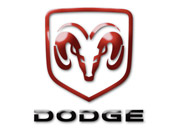2003 Dodge Viper Insurance Rates
Trying to find the cheapest auto insurance rates for your Dodge Viper? Searching for the cheapest insurance for a Dodge Viper can be a lot of work, but you can learn these tips to find lower rates. There are both good and bad ways to find auto insurance online so we’re going to tell you the best way to price shop coverage for a Dodge and get the lowest price either online or from local insurance agents.
Choosing the best insurance company for you is not that difficult. If you are insured now or are shopping for new coverage, you can follow these tips to find the best rates while maximizing coverage. Consumers just need to understand the best way to shop for auto insurance online.
Insurance Quote Comparison
Performing a rate comparison can be a lot of work if you aren’t aware of the best way to get rate quotes. You can waste hours driving to insurance companies in your area, or you can utilize the web to get rate comparisons in just a few minutes.
Most of the larger companies participate in a marketplace where prospective buyers only type in their quote data once, and each participating company returns a rated price for coverage. This saves time by eliminating quote requests for every insurance company.
To participate in this free quote system, click here (opens in new window).
One minor caviat to doing it this way is you don’t know exactly the providers you want to price. So if you prefer to choose specific providers for rate comparison, we have a listing of low cost insurance companies in your area. Click to view list.
It’s up to you how you get prices quotes, just ensure you’re using apples-to-apples information with each company. If you are comparing higher or lower deductibles you can’t possibly truly determine the lowest rate.
Car insurance is unique, just like you
When it comes to buying the best auto insurance coverage, there isn’t really a single plan that fits everyone. Every situation is different.
For instance, these questions may help you determine if your situation might need an agent’s assistance.
- Can I afford to pay high deductible claims out of pocket?
- Do I have coverage when using my vehicle for my home business?
- When does my teenage driver need to be added to my policy?
- Should I waive the damage coverage when renting a car?
- How much liability do I need to cover my assets?
- Does insurance cover damages from a DUI accident?
If it’s difficult to answer those questions but you think they might apply to your situation, you may need to chat with a licensed agent. If you don’t have a local agent, take a second and complete this form. It’s fast, doesn’t cost anything and you can get the answers you need.
Car insurance coverages for a 2003 Dodge Viper
Understanding the coverages of your car insurance policy can help you determine which coverages you need for your vehicles. The coverage terms in a policy can be ambiguous and even agents have difficulty translating policy wording.
Comprehensive or Other Than Collision
Comprehensive insurance covers damage from a wide range of events other than collision. A deductible will apply and the remainder of the damage will be paid by comprehensive coverage.
Comprehensive insurance covers claims like fire damage, hitting a bird, hitting a deer and falling objects. The highest amount you can receive from a comprehensive claim is the ACV or actual cash value, so if the vehicle’s value is low it’s not worth carrying full coverage.
UM/UIM Coverage
This coverage protects you and your vehicle’s occupants when other motorists are uninsured or don’t have enough coverage. This coverage pays for injuries sustained by your vehicle’s occupants and damage to your Dodge Viper.
Due to the fact that many drivers only carry the minimum required liability limits, their liability coverage can quickly be exhausted. For this reason, having high UM/UIM coverages is a good idea.
Auto collision coverage
Collision coverage pays to fix your vehicle from damage caused by collision with a stationary object or other vehicle. You will need to pay your deductible and the rest of the damage will be paid by collision coverage.
Collision coverage protects against claims such as rolling your car, damaging your car on a curb, colliding with another moving vehicle, sideswiping another vehicle and hitting a mailbox. Collision coverage makes up a good portion of your premium, so consider dropping it from vehicles that are older. Drivers also have the option to bump up the deductible to bring the cost down.
Medical costs insurance
Coverage for medical payments and/or PIP provide coverage for immediate expenses for things like surgery, nursing services and hospital visits. They are often used to fill the gap from your health insurance program or if you lack health insurance entirely. Medical payments and PIP cover both the driver and occupants and will also cover getting struck while a pedestrian. PIP is not universally available and gives slightly broader coverage than med pay
Liability insurance
This protects you from damage or injury you incur to a person or their property in an accident. This coverage protects you against other people’s claims, and doesn’t cover damage to your own property or vehicle.
It consists of three limits, bodily injury per person, bodily injury per accident and property damage. Your policy might show liability limits of 50/100/50 that translate to $50,000 in coverage for each person’s injuries, $100,000 for the entire accident, and a total limit of $50,000 for damage to vehicles and property.
Liability coverage pays for claims like loss of income, bail bonds and attorney fees. How much liability should you purchase? That is a decision to put some thought into, but you should buy as high a limit as you can afford.

